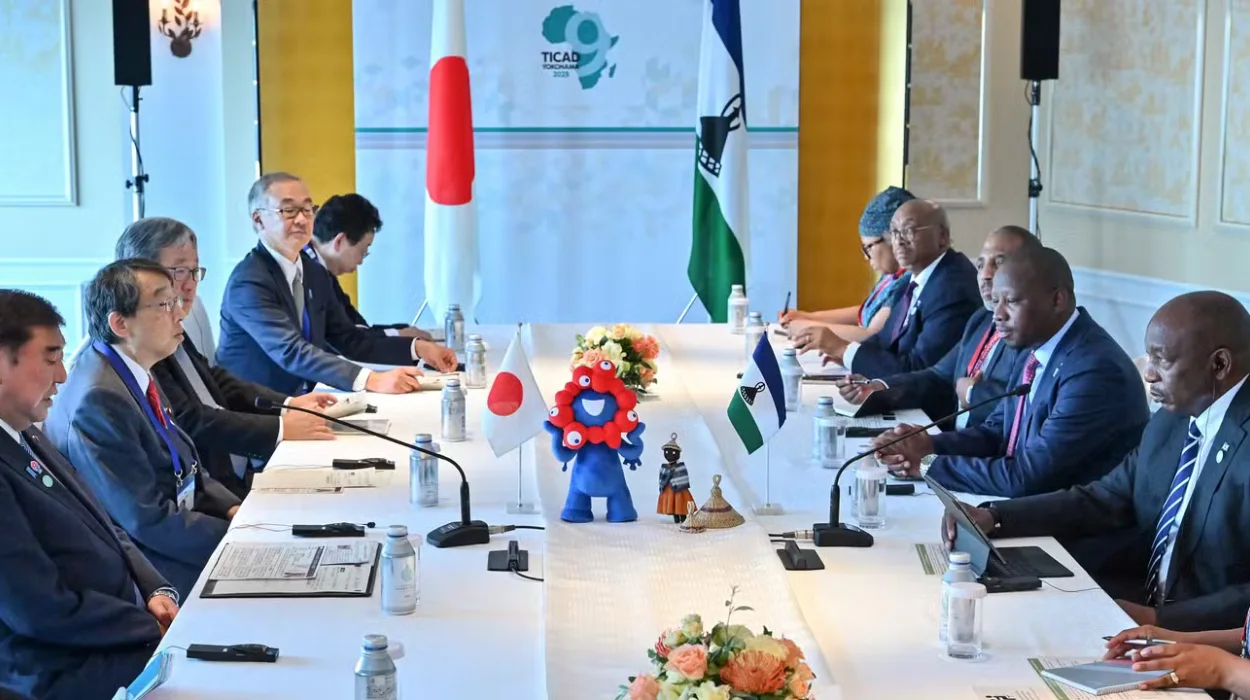Tokyo (Parliament Politics Magazine) – Japan’s plan to link four cities with African countries sparked xenophobic backlash, fueled by media misreports suggesting mass immigration fears.
As reported by The Guardian, Japan’s efforts to strengthen ties with African countries have sparked a crisis after misleading reports claimed it would trigger a “flood of immigrants.”
The controversy started after Japan’s International Cooperation Agency announced plans to designate four cities as “Africa hometowns.” The initiative pairs the cities with African nations, including Mozambique, Nigeria, Ghana, and Tanzania.
How did Japan’s Africa city partnership spark social backlash?
The initiative, revealed during an international African development conference in Yokohama, will involve collaborative events and staff exchanges. Its goal is to deepen ties between four regional Japanese cities, Imabari, Kisarazu, Sanjo, and Nagai, and their African partners.
Coverage in four countries, along with Japanese translations of the articles, fueled a backlash online. Officials in several cities faced thousands of angry calls and emails across Japan.
Opponents assumed that the “hometown” status meant residents of African nations could gain rights to live and work in the Japanese partner cities.
One critic said, “If immigrants come flooding in, who is going to take responsibility?”
A social media post alleging that Kisarazu was “handing over the city to Africans” drew 4.6 million views.
What did Sanjo officials say about the flood of complaints?
The four Japanese cities reported receiving thousands of complaints from residents about the initiative.
An official in Sanjo said,
“Our team of 15 officials spent a whole day handling hundreds of phone calls and thousands of emails from residents.”
Officials confirmed the town received 350 calls and 3,500 emails in just days. In Imabari, residents made 460 calls and sent 1,400 emails asking if immigration policy had changed.
Yoshimasa Hayashi’s views on visa rumours
Japan’s chief cabinet secretary, Yoshimasa Hayashi, dismissed the claims as baseless. He said,
“There are no plans to take measures to promote the acceptance of immigrants or issue special visas for residents of African countries, and the series of reports and announcements concerning such measures are not true.”
Mr Hayashi added,
“Our initiatives will involve cooperating in the education of young people based on discipline through baseball and softball, and it’s not a programme that will lead to relocation or immigration.”
What did Sanjo’s Mayor say about migration rumours?
The mayor of Sanjo, Ryo Takizawa, stated in a statement,
“It is not true that the city has requested to accept migrants or immigrants from Ghana, and the city has no plans to make such a request in the future.”
The backlash was attributed to a Tanzania Times report titled “Japan dedicates Nagai city to Tanzania.”
According to the Asahi Shimbun, the term “dedicates” was translated into the Japanese word sasageru, which some interpreted as meaning the town was being “sacrificed” to Tanzania.
How did Japan address Nigeria’s misunderstanding of the scheme?
Nigerian officials depicted Kisarazu as a hub for citizens to live and work in Japan, a claim Tokyo says misrepresents the programme. The statement further claimed that Japan would launch a special visa scheme for skilled Nigerians.
According to reports, Japan’s foreign ministry has urged the Nigerian government to correct the record. JICA, the agency overseeing development cooperation, said several media outlets had published stories containing “inaccuracies and potentially misleading information.”
They published on their website,
“JICA is currently urging the relevant local media and the African government [sic] to promptly correct the inaccuracies contained in their coverage.”
Key facts about Japan’s foreign residents
Japan’s foreign resident population hit a record 3.76 million in 2024. This makes up about 3% of the total population. The largest groups are from China (873k), Vietnam (634k), and South Korea (409k), with Vietnam showing the fastest growth.
Tokyo (739k) and Osaka (334k) host the most foreigners. Growth is also rising in regional hubs like Hokkaido, which saw a 19.6% increase.


